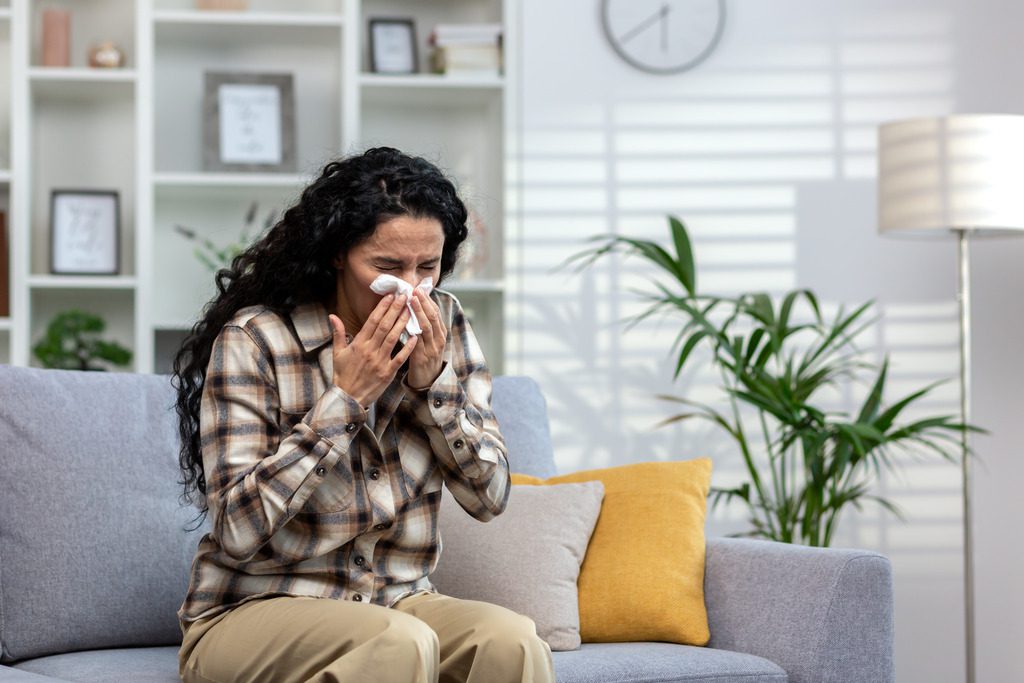What’s the Best Treatment for Ragweed Allergy Symptoms?
Sniffling, sneezing, and a sore throat are hallmark signs of an allergy, and ragweed is no stranger to the Myrtle Beach and Horry County area. Ragweed allergy symptoms make you miserable, and you may often find yourself searching for over-the-counter remedies to your problem.
But what if those aren’t enough?
We’ll take a closer look at ragweed allergy treatment as well as the best medications for the condition. We’ll also examine how our experts affiliated with Conway Medical Center can help.
For more than 100 years, Conway Medical Center has served the Myrtle Beach, Conway, and Horry County area as one of the leading medical providers in the region. Our ear, nose, and throat physicians are experts in ragweed allergy treatment, and appointments are available. Contact us today.
What Are Ragweed Allergy Symptoms?
You’ll find that the ragweed allergy symptoms are very much like “regular” allergy symptoms. They include:
- Runny or stuffy nose
- Sneezing
- Headaches
- Dry, irritated, or itchy eyes
- Itchy, scratchy throat
Fall allergy symptoms are lasting longer; while they used to run through September, now it’s not unusual for them to continue through October or even November.
When is Ragweed Allergy Season?
As we mentioned earlier, the season gradually continues until well into late fall, though typically it peaks in September. Usually, the season starts in late summer.
This is the primary time when the ragweed plants release their pollen—which spells misery to those with allergies.
How Long Do Ragweed Allergies Last?
This depends upon how long the ragweed plant is blooming and shedding pollen. While there are variations from person to person, in general, it lasts from late summer to early to late fall.
How Do I Know If I’m Allergic to Ragweed?
The first sign is the common ragweed allergy symptoms that we listed above. If these arise during fall allergy season, ragweed is likely causing it.
But to truly understand what’s causing your allergies, we need to perform allergy testing.
What Happens During Allergy Testing?
You may have heard this referred to as the skin test.
During this exam, we expose your skin to suspected allergens. (An allergen is any substance that causes an allergic reaction). If your skin shows a reaction, then we can identify the cause. As a result, we can more closely tailor treatment to help ensure your ragweed allergy symptoms are minimal.
In certain cases—such as those who have had severe allergic reactions—a skin test may not be appropriate. In this case, we may recommend a blood test.
What Medicine Is Best for Ragweed Allergy?
The good news is that there are a lot of over-the-counter medications that provide relief.
The bad news is that they don’t work for everyone.
We recommend managing your allergy symptoms through:
- Antihistamines to reduce itching, sneezing, and your runny nose
- Decongestants to relieve nasal congestion.
- Nasal corticosteroids for reducing inflammation
However, in certain cases, prescription medicines may be needed. For example, we may prescribe leukotriene inhibitors if you have asthma-like symptoms.
It’s vital to understand that there are certain circumstances where you should not use over-the-counter medication and should speak to one of our ear, nose, and throat specialists before you do. These cases may include:
- If you’re breastfeeding
- If you have diabetes, high blood pressure, or other chronic health conditions
- You’re taking certain herbal supplements—these can interact with other medications
- Your current allergy medicine isn’t working.

Successful Treatments for Ragweed Allergies

While medications can be effective, often they only treat the ragweed allergy symptoms, and may not eliminate the problem. In these cases, you may wish to consider immunotherapy.
In immunotherapy, we expose you to a diluted allergen, then gradually increase your exposure. You may have heard these referred to as “allergy shots.” Speak to one of our ear, nose, and throat doctors in Myrtle Beach and Horry County for more information.
What Is Ragweed Anyway?
Ragweed. The name has become synonymous with misery and dread. But how much do you know about this weed?
Ragweed is a flowering plant that’s found in almost all of the U.S.—and even well into Canada. They are annuals and grow in abundance thanks to the large amount of pollen they carry. While goldenrod species of ragweed get a lot of the blame for the high pollen counts, it’s actually the smaller ragweed that lives in the grass that is the primary culprit.
The American Academy for Allergy and Immunology also has this to say about ragweed.
- Ragweed is the main cause of many fall allergies.
- Even though ragweed is an annual (lives one season), it can produce 1 billion grains of pollen.
- Pollen from ragweed is exceptionally light— meaning it can easily spread throughout the air.
- Some studies point to rising carbon dioxide levels and higher temperatures as the reason that ragweed and other allergen-producing plants have a longer growth time.

Take Control of Your Ragweed Allergy Symptoms
You don’t have to be miserable. Don’t suffer through the inconvenience of continuous sneezing or an annoying runny nose. Relief is available through our professional ENT doctors in Myrtle Beach, Conway, and Horry County.
Getting an appointment is simple.
Just contact us to be on your way to relief.





